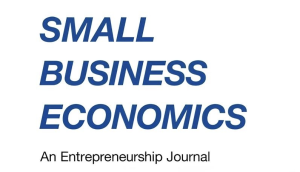The paper “What gets published and what doesn’t? Exploring optimal distinctiveness and diverse expectations in entrepreneurship articles” has been published in Small Business Economics. The article is co-authored by Marie Madeleine Meurer, Maksim Belitski, Christian Fisch (EINT, SnT), and Roy Thurik.
📖 Read the open-access article here
About the Paper:
The field of entrepreneurship research has grown rapidly, intensifying the expectations of academic audiences. To succeed in the publication process, articles are expected to strike a balance between novelty, rigor, theoretical contributions, practical relevance, and clarity—a task that presents significant challenges for authors.
This study investigates how authors can navigate these demands and achieve optimal distinctiveness in their academic writing. Using computer-aided text analysis, the authors analyzed the textual features and editorial outcomes of over 8,000 articles published in two leading journals: Entrepreneurship Theory & Practice (ETP) and Small Business Economics (SBEJ).
The findings challenge conventional wisdom about what makes a successful entrepreneurship paper. Contrary to common belief:
- High distinctiveness is not always rewarded,
- Meeting a large number of expectations does not guarantee success, and
- Clarity of language plays a critical role in effectively communicating complex ideas.
The paper contributes to optimal distinctiveness theory by showing how the dynamics of academic publishing differ from expectations—and underscores the importance of carefully crafted narratives in scholarly communication.
